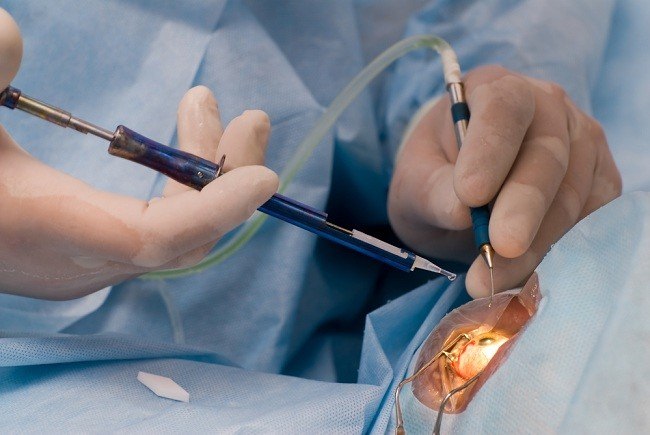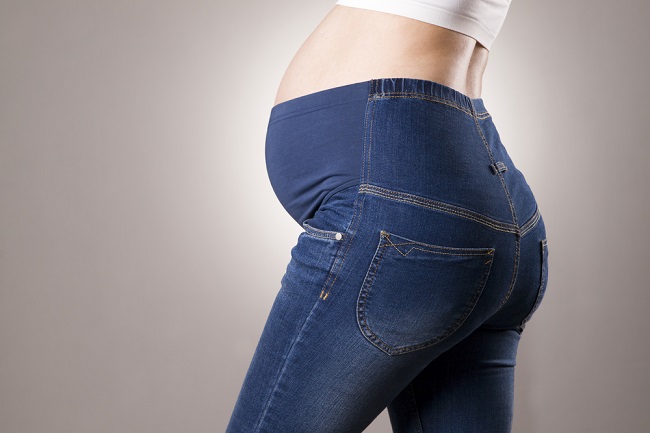Constipation or difficulty defecating (BAB) after surgery is a common problem. There are various reasons why constipation occurs after surgery, even in simple surgical procedures. Knowing the cause of constipation is key to preventing and treating this condition.
If difficult bowel movements are not treated immediately, it will often lead to more severe constipation. Stool or feces will become harder and the frequency of bowel movements becomes less frequent. This is because the feces have dried up in the colon.

Prolonged constipation can develop into a stool blockage, which is when the stool is so hard and dry that it makes you unable to have a bowel movement. Straining for too long due to constipation can also cause hemorrhoids, heart rhythm disturbances, and breathing problems.
If there is a blockage of feces, it is necessary to do special treatment from a doctor. In certain cases, the blockage of feces may even need to be treated with surgery.
Symptoms of Difficult Defecation After Surgery
Some of the symptoms that can appear due to constipation are:
- Defecate less than 3 times a week
- Need to strain when defecating
- Bloated
- Stomach pain
- Stool that comes out hard
- Feeling incomplete after defecating
Various Causes of Difficult Defecation After Surgery
Difficult bowel movements after surgery can be caused by different factors. The following are some of the causes of difficult bowel movements after surgery:
1. Use of general anesthesia (general anesthesia)
General anesthesia is used to immobilize the body and ensure that the patient does not feel pain during the surgical procedure. However, anesthetics also have an effect on the intestines and can slow down bowel movements, causing constipation.
2. Fasting before surgery
Not eating or drinking too long before surgery can also cause constipation. The reason is, consuming food and drinks in small amounts or even not at all will cause the feces to become dry and hard so that it is difficult to remove.
If after surgery you are allowed to eat and drink but are still afraid and eat little or no water, it can also cause constipation.
If it is difficult to defecate after surgery because of this, then you need to improve your diet and drinking to relieve symptoms.
3. Effects of bowel surgery preparation
Preparation for bowel surgery, such as in a colonoscopy, is done by drinking a solution or medication that functions to clean feces from the digestive tract. So do not be surprised if there is difficulty or no bowel movements after surgery, because the intestines are completely empty of feces.
4. Nerve damage
Patients who have nerve disorders, paralysis, or have their nerves severed during surgery are more prone to experiencing constipation after surgery. This is because these conditions make sufferers do not have the urge to defecate, or can not defecate without the help of drugs.
5. Effects of drugs
Pain medications, such as opioids, which are often given for postoperative management can cause severe constipation. Likewise, diuretic drugs, iron supplements, and antacid drugs for the stomach.
6. Lying too long
Walking and a number of other physical activities can stimulate you to have a bowel movement. So do not be surprised, when you lie down for too long or lack of physical activity after surgery, you become more easily constipated.
7. Improper diet
The diet pattern chosen after surgery determines the smoothness of bowel movements. A diet low in fiber can cause constipation. Similarly, consuming too much cheese, caffeine, and alcohol.
8. Digestive disorders
If you have bowel problems, such as Crohn's syndrome or irritable bowel, you are much more at risk of having bowel movements after surgery.
9. Ignoring the urge to defecate
Delaying bowel movements because they are busy, lazy, or don't have time to go to the bathroom can trigger constipation. The reason is, the longer the dirt is left in the digestive tract, the more dry and hard the feces will make it difficult to expel.
Preventing Difficult Defecation After Surgery
The following are some ways you can do to prevent constipation after surgery:
Eat soon
Eat immediately when the doctor has allowed you to eat after surgery. Eating food can stimulate the intestines to work and prevent constipation.
Drink more water
Dehydration makes constipation easier, because water can help break down food in the stomach and improve digestive function. Therefore, it is recommended that you drink at least 8 glasses of water (2–3 liters) every day to prevent constipation.
Avoid caffeine consumption
In addition to drinking less, consuming caffeine can also cause dehydration which can trigger constipation after surgery. So, to prevent it, you need to avoid consuming foods or drinks that contain a lot of caffeine, such as coffee, tea, caffeinated soda, and chocolate.
Eat fibrous food
It is recommended that you get 25–37 grams of fiber every day. Eating fiber foods can help keep your bowel movements regular.
Foods such as nuts, apples, pears, pumpkin, sweet potatoes, and spinach are good sources of fiber. If you don't have much appetite after surgery, you can try drinking fruit and vegetable juices.
Move a lot
When the doctor has allowed you to move after surgery, then get up and move as much as possible, but don't push yourself either. Even a short walk in the hospital hallway can help prevent constipation.
Difficult defecation after surgery is a common problem, but it still needs to be addressed immediately. Otherwise, this condition has the potential to become more severe and will feel very annoying.
Do not delay to consult a doctor if there are complaints of constipation after surgery. To treat this, your doctor may recommend stool softeners or laxatives that make stools easier to pass.
If laxatives and stool softeners don't work, your doctor may prescribe a suppository (inserted into your rectum). Similar to the two drugs above, suppository drugs are also useful for making stools easier to expel.
Written by:
dr. Sonny Seputra, M.Ked.Klin, Sp.B, FINACS
(Surgeon Specialist)









